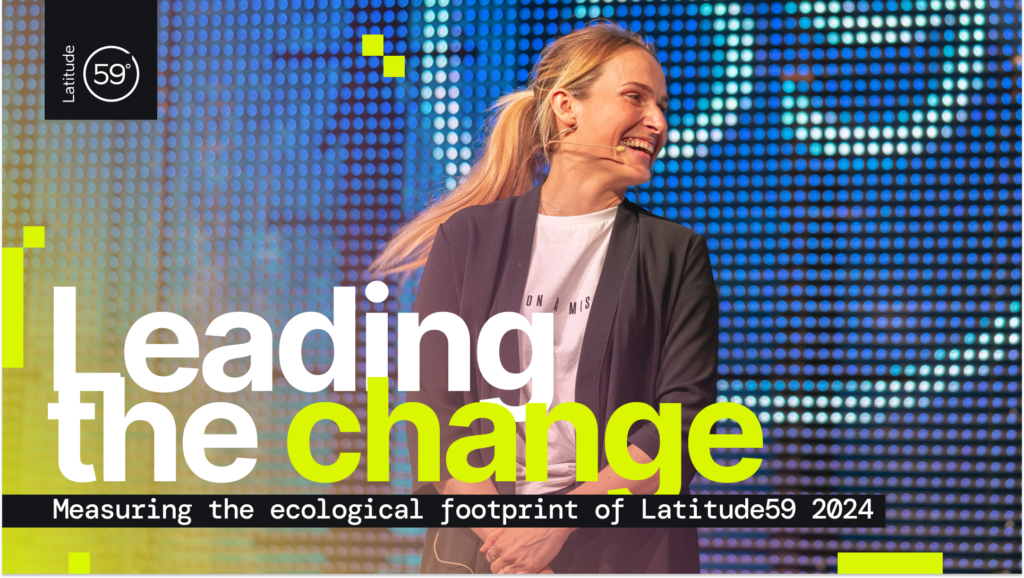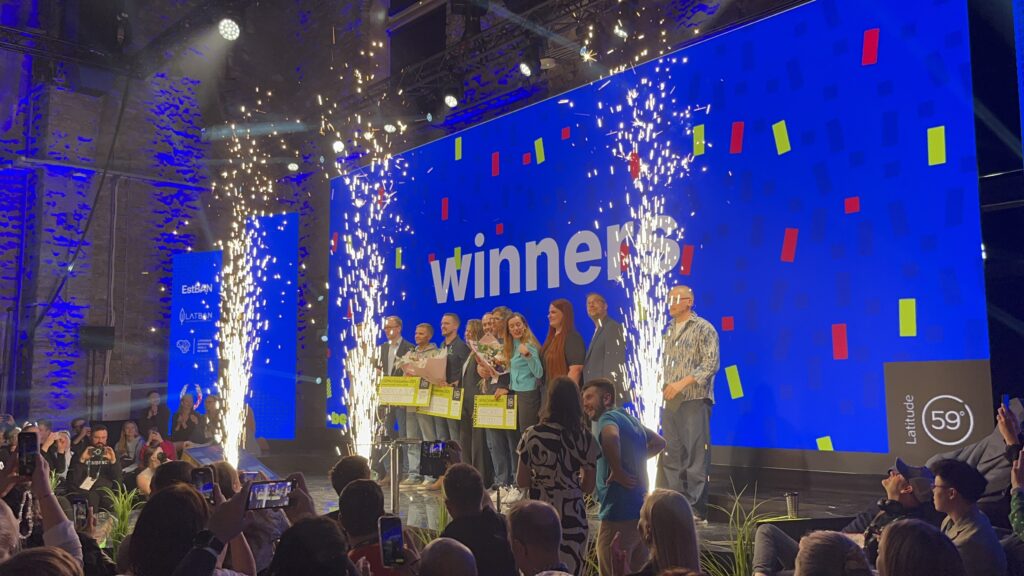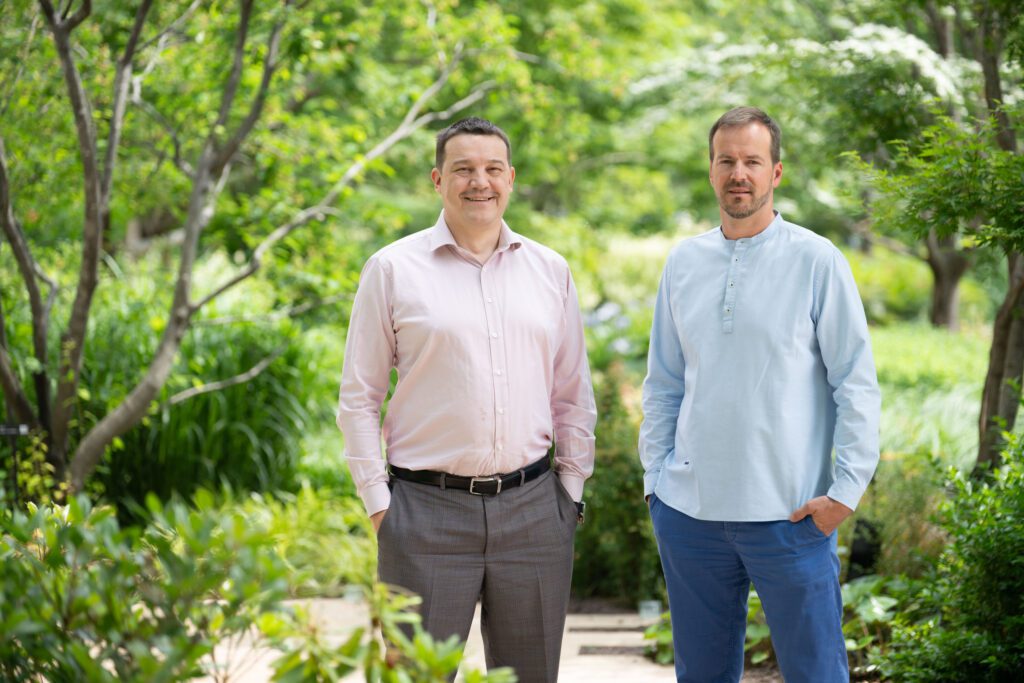Latitude59 is an international event that has been taking sustainability seriously for several years. It shows on all levels of the preparation phase and corresponding expectations have been set for all partners, production teams and participants. Acento, the sustainability partner for many big-scale events, has had the opportunity to grow alongside Latitude59 for the past 4 years. In 2024, we’ll be undertaking the precise measuring of the ecological footprint of the entire 2-day conference at Kultuurikatel, together.
Raimo Matvere, Acento’s Co-Founder and Team Lead, shares that the measurement makes it possible to better understand the effectiveness of the steps taken so far and to reach a point of comparison with other similar events in this region. Acento is in the middle of developing an event climate impact calculator that takes the specifics of events into account, and piloting it with Latitude59 is a great opportunity.
What is the methodology behind measuring the ecological footprint of a conference?
We start from the usual methodology of measuring the event’s carbon footprint as this impacts the climate the most. The equation is quite thorough and takes into account all the necessary resources and activities that have been put to use while organizing the conference: travel/transport, energy, materials, digital, catering and waste management. International and (where appropriate) local recognized emission factors are used for the calculation.
What exactly will be the result? And what should we do with this knowledge?
It is important to understand the climate impact associated with various activities (including events) and what are the possibilities to reduce it. The event contains components that are easily perceived or clearly visible to the average person, but measuring and making sense of their impact helps encourage more environmentally friendly behavior. No to mention that many aspects can also be extended to people’s everyday lives. An impactful change can’t take place in seclusion; we live in a system and every lit bit helps to shift the paradigms of what’s normal.
There is always a better way to do anything. If we measure what we want to improve, we can start to seek solutions, have better conversations, experiment with what works and be conscious about learning from good role models.
Why do you believe that such an approach is the best way forward?
It is possible to go into great detail with measuring the climate impact and, more broadly, the footprint of the event. For an organization (such as Latitude59), it is rather a question of what kind of insights are needed to make better (business) decisions in the future, to be more efficient, and to serve the customers’ expectations better. It becomes a strategic factor for faster and more focused growth.
Ideally, two levels of action go hand in hand – real practical steps to make the conference more sustainable (which Latitude59 has already been doing for years) and climate impact measurement. In this way, there is a clearer overview of what are actually the biggest climate impact factors and where to focus the attention in order to reduce the impact.
In an ideal world, the results of the measurement (and also the feedback obtained from other analysis) will show the conference organizer areas for improvement, which can then be taken into account when planning the next events and find specific solutions to reduce certain factors. It may be difficult to change some things, such as the international nature of the event which requires a lot of travel, which has a big impact on the environment. But even here there are mitigating factors to be considered.
It can also be said that the general climate policy in the European Union, for example, is moving in the direction that companies and organizations must be aware of their impact on the climate in the future and take steps to reduce it. It is wise to be aware of your influence well in advance. If your organization hasn’t paid attention to it so far, now is a good time to start!
In conclusion, it is important to remember that climate change and preserving the environment is a shared responsibility of all of us, everywhere and at any time. The more we understand how to achieve the greatest positive impact and avoid or minimize the negative impact, the more resilient we are to the changes taking place in society, the economy and the environment.
What’s next? We roll our sleeves up and get busy! At one point during the conference, Latitude59’s team members or volunteers may turn to you with some insightful questions – for example, about the inventory used as a partner, or about your personal means of transportation or accommodation connected to the visit. Your answers, which will only take a minute or two, are very valuable. They are a crucial part in calculating, understanding and envisioning the path to building a better world, for all of us.
Read more about sustainability at L59 here.



